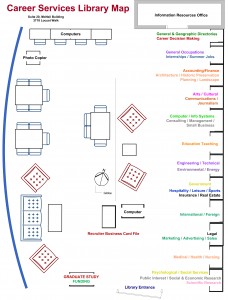Dr. Joseph Barber
I am always surprised when people attend workshops, panel discussions, speaker presentations, and other similar events, and don’t ask a question. There are many good reasons you should ask questions when speakers are giving a presentation, and here are my top 5
1) Contrary to what you might believe, asking a speaker a question is a way of thanking them. If you have ever been in a situation where you have presented your work, or talked to a group, and no-one raises their hand at the end to ask a question, you know how disappointing it feels. You start to wonder, did they already know what you told them, and do they care? Do they know how long you worked on putting the presentation together and how far you came to give it? It is respectful to ask questions because it shows the speaker that you are engaged with the material, even if you are just asking for clarification on something that was said. It can also be good to thank the speaker for their presentation at the start of your question.
2) Asking questions will keep you awake. As a person dealing with the realities of two small children waking up at all hours of the night, I know it can be hard to keep your mind active during a presentation, especially one in a warm, dark room…, with soft chairs……, soft, comfy chairs…….., wait…, what? I’m awake! If you force yourself to ask a question at ever presentation you go to, you will find it is easier to keep your focus as you try to find something interesting to ask.
3) Asking questions helps you to network. We all know that networking is about getting to know lots of other interesting people, but the real trick with effective networking is ensuring that people know you. If you are at a conference, and take the opportunity to ask a question after a presentation, then don’t just be an anonymous questioner – be you. “Hi, I’m Dr. Joseph Barber, University of Pennsylvania. Thank you for this interesting presentation, I was just wondering whether….”. People often like to look at other people asking questions, and if you introduce yourself while you ask your question, you have a captive audience of people who will then suddenly know who you are. There aren’t many situations where you can stand up in the middle of a crowded room and introduce yourself to lots of different people at once, so take advantage of this one.
4) Asking questions connects you to speakers. Once you have asked a question after a presentation, you can then follow-up with the speaker, and you’ll find that you already have a shared history with them. You can introduce again as the person who asked the question, thank them for their answer, and then perhaps explain the reason you asked that particular question. Networking is all about building relationships, not just establishing them, and the more you find ways to interact with others in an active way, the more likely it is that relationship building will occur.
5) Asking questions provides you with information. Just like with the questions you can ask interviewers at the end of an interview, don’t just ask questions to sound smart, ask questions that give you information you didn’t have before. Ask questions that are meaningful and relevant to you. These are the questions that will actually make you sound smart. If you are going to sit through any presentation, then make sure you get as much out of the experience as possible by getting your questions answered.
So, take my advice and ask a question at every presentation you attend. Every time that you do, there will be other people who had the same question who wished that they had, because you sounded so smart when you asked it. Speakers won’t always provide the answers you seek, but they will appreciate the opportunity to try.
While we are on the subject, these are some of the elements of a bad question that you should try hard to avoid:
- A long rambling monologue that is either awkwardly personal in nature (it has to do with the questioner’s unique background and experiences), or completely off-topic, and that doesn’t actually involve any questions within the first 2-4 minutes.
- Any statement of fact that doesn’t involve an actual question, no matter how succinct the statement is.
- A 3-part question (i.e., three separate questions in one giant frankenquestion). I would recommended not even asking a 2-part question, as usually the speaker won’t address both parts of the question equally, and you only get half and answer.
- Any question that tries to catch the speaker out.
- A complex question that comes at the very end of the Q&A session when everyone is eager to leave. Take note of the time, and the body language of the audience, moderator, and speaker, and ask you questions early on to avoid this issue.
What’s your question for today?



